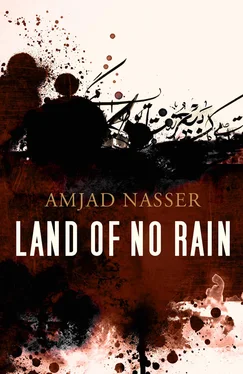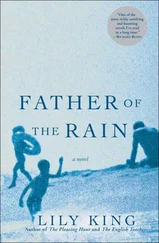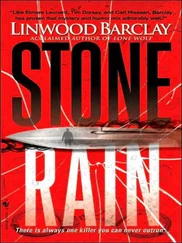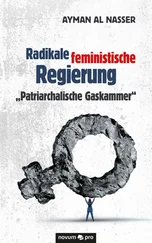* * *
Behind a window overlooking the street, as you watch a bird tracking prey you cannot see, you’ve started to write your last book. The book of all your books. You’ve decided to take a different approach this time. Because this time is different: there’s no newspaper or magazine waiting for you to throw it a piece of your flesh (an extreme metaphor for words, which you often used without realising what it meant; you just liked the sound of it). You’ve decided to set your writing free from the dates, parenthetical clauses, digressions and proper names that usually weigh it down. For a long time you saw the latter as essential props, before you discovered that their solidity was deceptive. You’ve resolved to ignore them or replace them with description. You have a rationale in your head for this plan: you want to free yourself from them. But you’re not sure about the validity of this reason, because it’s hard to free oneself from names. It’s also hard to free oneself of chronic habits, favourite words and obsessive ideas.
Apparently things don’t disappear completely. They don’t vanish for ever. It’s like the scientific principle I once read about in class, that matter doesn’t disappear, it just changes from one state to another.
* * *
You’re a man familiar with life under the roof of matrimony, a roof that rests on the twin pillars of patience and promises.
Remember that.
The boat on which you left the City of Siege and War sailed to the Island of the Sun. There you met a young sociologist who had rebelled against her family and, like you, had fallen under the spell of ideas about replacing the corrupt old world with a new world where everyone would be equal. That’s the echo of an old way of speaking, which many people today consider to be intellectual naivety, even though its red banners once fluttered on the skyline. The Island of the Sun teemed with refugees, people fleeing the City of Siege and War. On that island, its humped form like that of a giant tropical tortoise, there were political activists, guerrilla fighters and arms dealers, diplomats and spies, poets and writers, artists, newspaper and magazine editors and printers, wanderers, adventurers, profiteers and purveyors of lies, cooks and prostitutes, musicians and singers — a vast throng tossed there by the cycle of successive wars that raged. Then came the thousand-day siege and the occupation. You met her at a seminar on the lessons to be drawn from what was happening in the City of Siege and War. She was talking about the double standard that intellectuals apply towards women — how they speak about them in the world at large and how they treat them at home. They ask women to liberate themselves and rebel, but they keep a close eye on their wives, sisters and daughters. What she said was strong and measured, without emotion or histrionics, despite her tremulous tone.
You liked what she said; in fact you liked her. You met several times. You were famous, to some extent, within a narrow clique of intellectuals — a poet and activist from a country ruled by a military dynasty of men with ginger hair. So it wasn’t hard to introduce yourself. At first you were surprised that a young woman from a country so isolated from its surroundings would rebel and throw herself into public affairs, would run away and cross borders, through dusty towns, along dry riverbeds, to settle in a city that was vulnerable to wars and sieges. She was rather pretty, attractive in fact. She didn’t wear make-up and rarely used perfume. That made her more attractive in your view, along of course with the intelligence that shone in her eyes. After two or three meetings you knew part of her story. She had been married, briefly, to a young revolutionary from her own country. They had met while studying in the City of Red and Grey and fallen in love. In their case love and ideology went hand in hand. In their meetings, far from the eyes of family and the traditions of their country, ideas and books were just as present as emotions and sex. That was rare among the young people of their country, which had been indoctrinated by a strict religious sect. They married. But the marriage did not last long, because the young revolutionary quickly changed. Her differentness, which he had liked abroad, began to trouble him back at home. Then it began to annoy him. Then it started to keep him awake at night: her smoking, the way she crossed her legs on an evening out or at a family gathering, her lack of interest in dressing up, the way she was so candid with her opinions, the way she objected to any word or deed she didn’t like, the clarity of her ideas and her conduct, her interest in public affairs. In short, her attempt to pursue what they believed in and what they had done abroad, and her uncompromising attitude towards the conventions of their country. The marriage ended in a divorce that no one favoured, even those closest to her. She was on assignment when she came to the City of Siege and War for the first time. It amazed her that there should be a city in the region that was so open-minded, so pluralistic, with such a lively social life despite the occasional outbreaks of gunfire. She said this was the city where she dreamed of living, and she came again to settle, running away to join the forces of the revolution, which put up posters of its martyrs and leaders on the approaches to the city, with slogans promising a new world.
It wasn’t long into your relationship with her that you got married. After that you lived in as much harmony as is possible for two bodies, two spirits from two different backgrounds under a single roof. You were living your present, that moment when you met her. This is true. You never thought about the fact that you were not the first man in her life, because she too was not the first woman in your life. What mattered to you was that you should have nothing in common with that young revolutionary who had sold out as soon as he went back to his country. You would analyse with her the contradiction between the principles and behaviour displayed by the revolutionaries in our region. As though reciting from a sacred text, you attributed this to the fact that objective circumstances were not yet ripe and that ingrained traditions vigorously resisted new ideas. But this was only what you said at the start of your relationship, before you got married. You liked that. You praised what she said without reservation. You endorsed her arguments and her conclusions about the double standards of intellectuals. In fact you would even go a step further. You seemed to be in complete agreement on these matters. After living under the same roof you changed somewhat. You changed gradually. You no longer wanted to take part in these discussions. On such issues you were terser, less enthusiastic, less effusive than before. She was more lucid than you, and she remained so. It was you who still preserved inside you areas shrouded in darkness that, with the passage of time, you surrounded with barbed wire.
* * *
In your final years in the City of Red and Grey, you had the impression that she had the upper hand in the household. It was an impression rooted in traditional attitudes that you hadn’t completely shaken off, but it was not necessarily the reality of the situation. Having studied sociology in that same city, she had found a good full-time job in an organisation that dealt with immigrants. You had a sporadic income. You helped set up a magazine — along with others who had escaped from your part of the world with their writing skills and their ideas (and with their skins) — as a platform for freedom, to expose the corruption and despotism of the forces in control there, but you left the magazine after it was co-opted. With their vast amounts of money or their pistols with silencers, those forces penetrated countries of refuge and asylum to bring to heel those who had strayed from the flock, those who had fled the hell at home. Some gave in under the pressure of making ends meet, while others said with derision, ‘If that’s how it is, why don’t we work with the very source instead of with its agents?’ That magazine was almost the last of the publications to join the choir in which the fugitives from hell raggedly sang the infernal national anthem, turning sour milk, as the proverb goes, into cottage cheese. Needless to say, you stopped working at the magazine and started to write here and there, leaving one failed project in order to embark on another. Which made you even more reclusive.
Читать дальше












